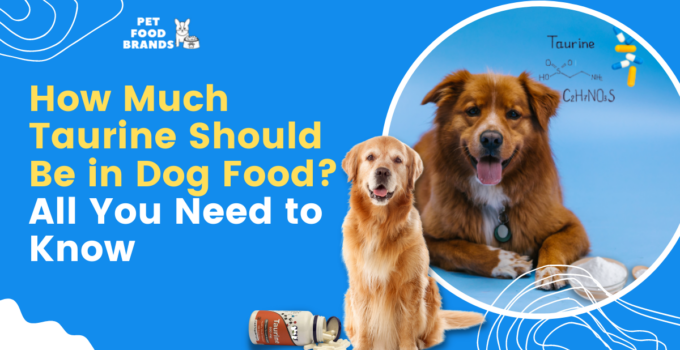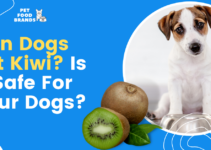While the pet world has been abuzz with canine nutrition and the term taurine, few pet parents are still clueless about it. One of the 22 essential amino acids, taurine is vital for the proper function of a dog’s body.
If you feel your furry friend is not getting enough of this amino acid through their daily diet, you might be wondering how much taurine your dog should consume.
It’s generally considered safe to give 1000 mg supplemental taurine per day to a dog that weighs around 40 lbs. If your pooch is heavier or lighter, you must adjust the dose accordingly.
Read on to know more about why you should give your dog taurine and how much of it is enough.
Taurine and Its Benefits for Dogs
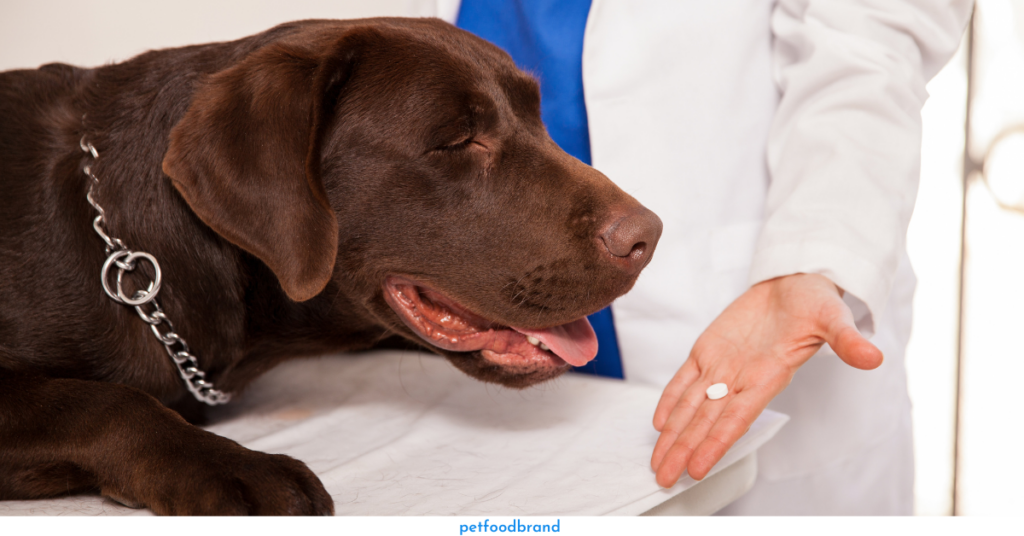
Taurine, an essential amino acid, is immensely beneficial for canines. The acid is present in higher quantities in the eyes (retina), the brain, muscle tissues, and also many other organs.
Found mainly in meat, taurine is a part of bile acids that the liver produces and the gallbladder stores. It helps in breaking down the fat present in food.
It is also pivotal for various biological as well as physiological processes like the production of bile salts that can help with the digestion of fat, regulating cell electrolytes, and also balancing neurotransmitters present in the brain.
And that’s not all. Taurine also offers many other health benefits like:
- Helps fight obesity
- Protects the liver from free radicals and oxidation caused by them
- Offers anti-inflammatory effects
- Improves reproductive health
- Controls diabetes
- Boosts the body’s immunity
- Minimizes the symptoms of a seizure
- Protects vision and retinas
- Strengthens heart
- Supports vascular function
How Much Taurine Should Your Dog Consume?
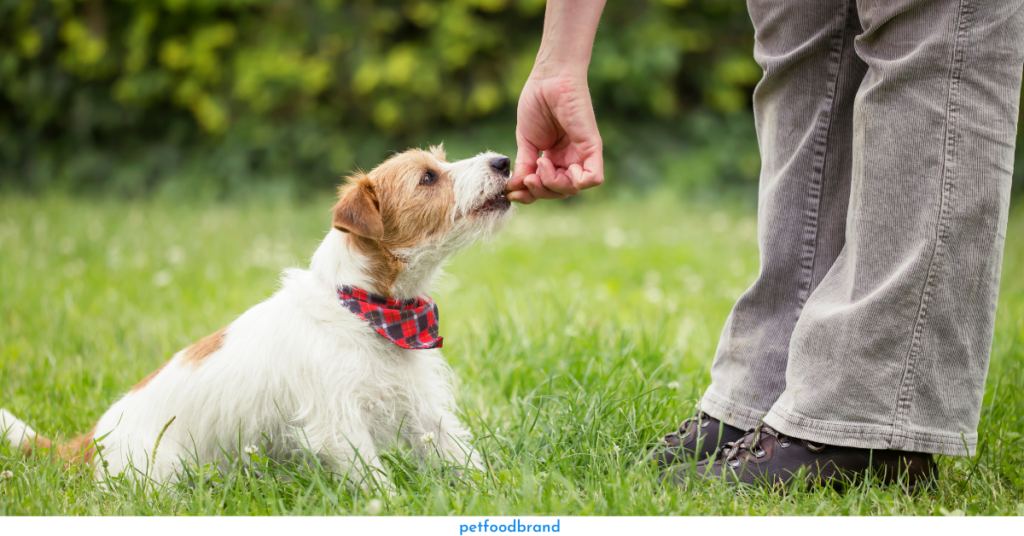
Taurine deficiency is common among pet dogs that are on regular diets. Whether it’s the physical examination report or the history of health issues that indicate the deficiency, you need to give supplemental taurine to ensure your dog’s overall health.
Taurine supplements are commonly available in the form of capsules of 500 mg and 1000 mg. Although the dosage might seem extremely high, it is safe for your furry companion.
Have a picky dog? Don’t worry; since these supplements have little to no taste, giving them to your dog will be a breeze.
Now let’s come to the dosage part. You can start giving 1000 mg of taurine supplements for 40 pounds or around 18 kgs of your poochs’ body weight.
If you don’t want to get into these calculations, you can instead adopt a simple rule. Go with a suitable daily dose of 500 mg for a small dog, only 1,000 mg of taurine for a medium-sized dog, and you can go up to 2,000 mg for any large breed dog.
These doses will help pets at risk of taurine deficiency get the requisite amino acid to stay healthy!
Good Sources of Taurine
If you are offering commercial diets and cereal grains to your pup, you won’t find taurine in any of those. As a result, a lot of dogs suffer from taurine deficiency.
Wondering what are some ideal sources of taurine that you can include in your dog’s diet? Well, we have laid down some options for you:
1. Poultry & other Animals
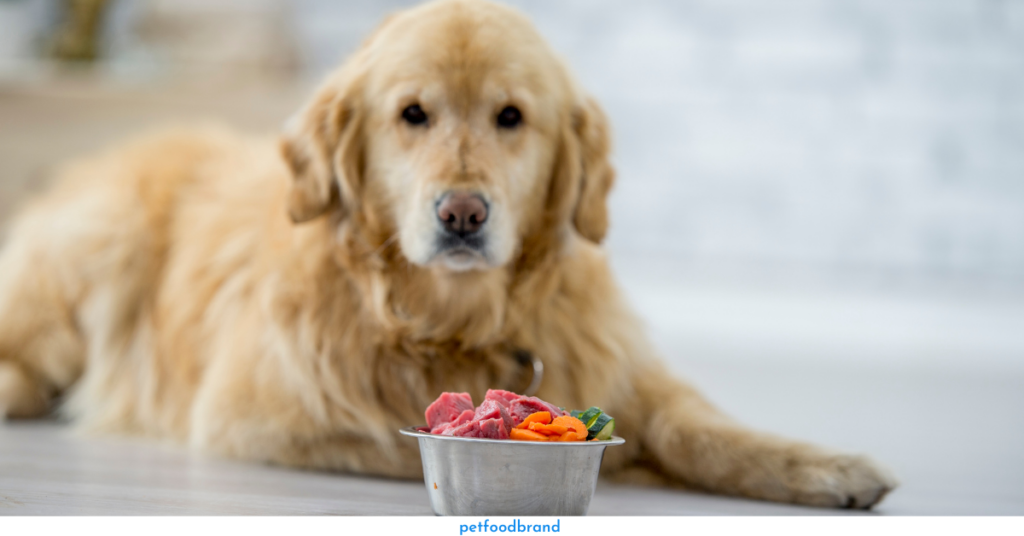
As we have already seen that taurine deficiency is a common occurrence, you must be worried about the sources of taurine. You’ll be relieved to find that it’s quite abundant. It’s found in poultry, a lot of animal meat, and even milk.
If you want to include taurine-abundant meat in your pup’s diet, then I suggest you go with the heart muscle.
While any animal, like beef, rabbit, venison, or even chicken, contains taurine, just remember that the highest amount is present in dark meat from poultry.
How much taurine do these meats contain? The taurine concentration of beef, lamb, and pork meat can range from 3.5 – 4.0 micromoles per gram. In a chicken leg, the concentration can be 6.6 micromoles per gram, while a chicken breast has 1.4 micromoles per gram.
2. Other Foods
By now you might know that grains and vegetables do not contain taurine. However, we have found some unique foods that are high in cysteine and methionine, and a dog can use them to make taurine.
Cysteine is not an essential amino acid, but it can aid the process of making protein. You can offer cysteine to your dog through oats, soy, cheese, eggs, poultry, broccoli, garlic, and even red pepper.
Methionine, on the other hand, is an amino acid that contains sulfur and is prevalent in eggs, fish, soy, cheese, sesame seeds, beef, and poultry.
Although you will find dog food companies commonly advocating their grain-filled pet foods for being adequate for providing methionine and cysteine to make taurine, it is not always true.
The amino acids your dog needs to produce taurine mainly come from animal products.
3. Sea Animals

Do you think poultry and other meat are the only sources of taurine?
No. A study indicated that the highest concentration of the amino acid taurine is present in octopus, with 31.2 micromoles per gram, and in clams, 41.4 micromoles per gram.
Other seafood like shrimp and fish contain a high level of taurine at 12.4 micromoles per gram and 9.1 micromoles per gram, respectively.
So yes, these could also be viable sources of taurine for your pet friend!
What Happens in the Case of Taurine Deficiency?
Taurine is already present throughout your dog’s body.
But in certain tissues of your dog, its concentration is a bit higher than the rest. The brain tissues, the heart tissues, and the retina contain more taurine compared to other parts.
If you find your pooch suffering from heart issues, retinal diseases, or cystinuria, then it might be right to blame taurine deficiency as the primary cause. And you can identify these disorders in your pet if you conduct a physical exam or use laboratory results.
Taurine deficiency is the underlying cause behind some serious ailments that your canine friend could be suffering from, like:
- Dilated cardiomyopathy or DCM
- Retinal degeneration and even blindness
- Hypertension
- Cystine stones or crystals present in the urine
Frequently Asked Questions
Is Taurine Necessary For Dogs?
Yes, taurine is an essential component for dogs. They need it for critical physiological processes like digestion and reproduction. Moreover, it is important to keep their eyes and hearts in good shape.
Is There Taurine In Eggs?
Yes, you will find a high concentration of taurine in eggs. Poultry is a good source of taurine for dogs.
Which Dog Breeds Need Taurine?
All dog breeds can benefit from taurine – an essential amino acid, but some breeds need it more than others. These dogs are more at risk of taurine deficiency. Labradors, golden retrievers, cocker spaniels, and even English bulldogs are more likely to suffer from it.
What Symptoms Are Caused By Taurine Deficiency?
A taurine deficiency can lead to serious symptoms in your pets, like vision impairment, kidney dysfunction, and even high blood pressure.
Final Thoughts
Taurine deficiency is a major health concern for dogs today. Still, many pet parents often end up neglecting it. Don’t make this mistake! It can affect your dog’s heart, eyes, and even kidneys.
You must ensure your furry friend gets enough taurine through diet or supplements. Ideally, you can add around 1000 mg of taurine for every 40 pounds of your dog’s body weight to help them stay happy and healthy.
If you’re unsure, you can always talk to a veterinarian to get expert guidance on giving taurine to your dog!

Ankita is a passionate pet lover and head of content at Pet Food Brands. With her extensive knowledge and research, she provides pet owners with top-quality information on dog food and nutrition. Her dedication to improving the lives of dogs makes her a leading voice in the industry.

